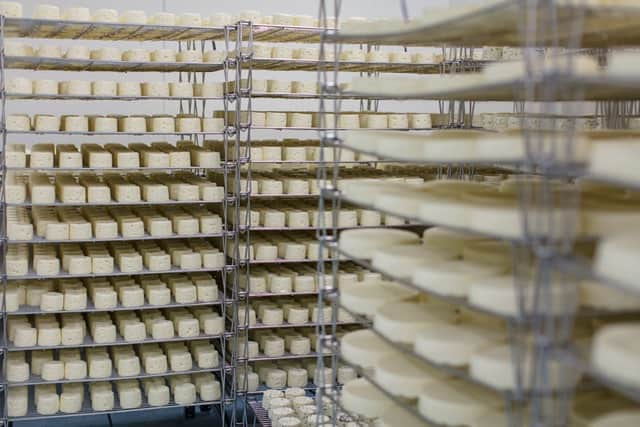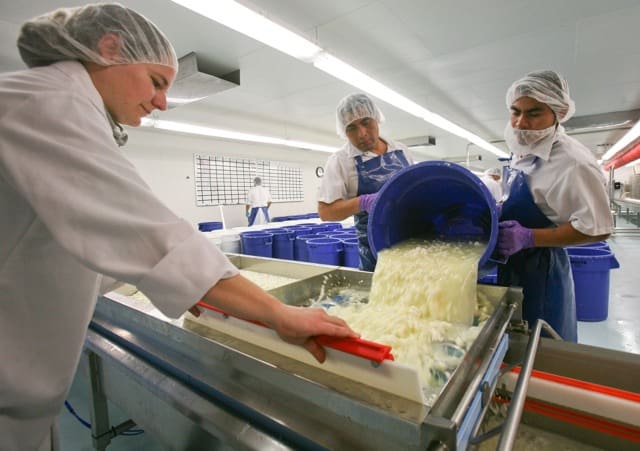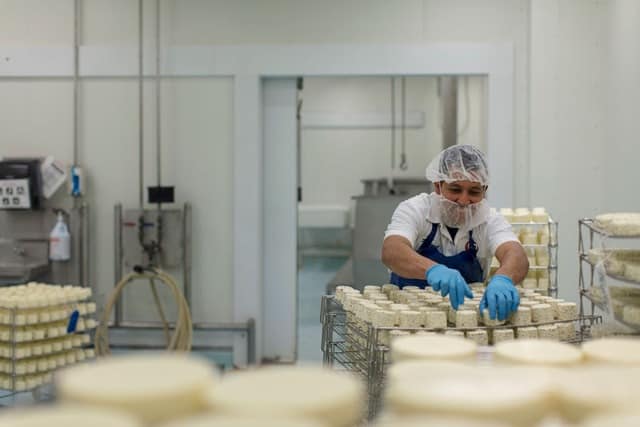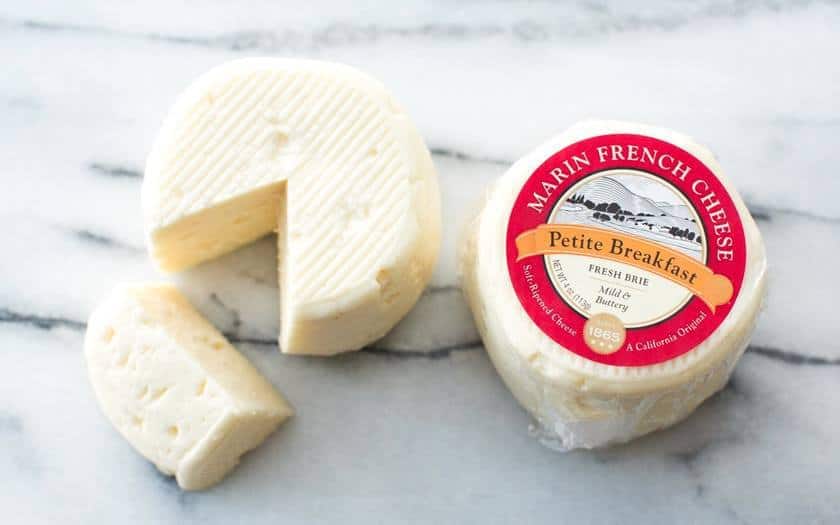
It’s all about the local milk, according to the cheesemakers behind Laura Chenel’s and Marin French Cheese, sister companies located, respectively, in Sonoma and Petaluma, California. A cheese company can have the best branding in the world—but if their milk isn’t just right, the rest is just noise.
Laura Chenel herself, the company’s namesake and a native of Sonoma, spent a decade studying abroad and on the East Coast before returning home. She bought some goats and began applying techniques she learned in France to transform the goat’s milk into artisanal cheese. Decades later, Chenel partnered with Marin French Cheese, which has been making cheese in the upper Bay Area since 1865.

Magic Milk
According to former director of marketing Elyzabeth Dehapiot, the key to their cheeses is terroir, the taste imparted by the environment in which the ingredients are produced. With the milk harvested from within 15 miles of the creameries, Dehapiot said, “The climate, soil, and topography all contribute to the [flavor] of the milk, and therefore of our cheeses.” The goat’s milk harvested for the sibling brands leads not only to traditional goat cheeses but also to bries, cabecou, and the aged Taupinière.
While Dehapiot acknowledges the lengthy history of cheesemaking in the Sonoma Valley—even predating much of the industrialized winemaking in the region—she said the landscape itself has far less to do with that industry than does the animal husbandry techniques passed down over generations.
“What has been historically made in a region plays a role,” she said. “Marin French Cheese has been making brie-style cheeses in Petaluma since 1865, so it’s normal that the company has continued to make and excel at what it knows best.” She cited the example of Marin French Cheese’s Petite Breakfast: Back in the mid-1800s, the first cheese the company made was a breakfast cheese, so by making Petite Breakfast, they’re staying true to their roots.
“Similarly, Laura Chenel’s expertise is in creating products with goat’s milk, and the proximity to the source of the main ingredient, goat’s milk, is key.”

From the Land
That local milk is worth it: Laura Chenel’s ash-ripened Buchette picked up a gold at the 2017 World Cheese Awards UK, and its Buchette Original nabbed a silver at the same event. But while the accolades are all well and good, Dehapiot said, it’s important to not rest on past achievements. “If anything, we have more pressure to prove how good we are,” she said.
In addition to locally sourced milk, the two creameries also make use of local olive oil for products like the marinated cabecou. Jalapeños are grown in California, too, and thus the Marin French Petite Jalapeño—gradually revealing itself on the tongue, its combination of heat is offset by the creamy profile—marries two of the many flavors of the Golden State. “Another unique quality that allows Marin French Cheese to stand out is the range of flavors,” said Dehapiot. Those include Camembert, jalapeño, and Cendrée—which come in seven varieties of 4-ounce wheels.
The size of cheese wheels has evolved with customer desires and also modern consumption habits, but for Marin French Cheese, the smaller wheels have withstood the test of time. “While a traditional wheel of brie can weigh as much as seven pounds, from the beginning we have broken with tradition and reimagined what a brie can look like,” Dehapiot added. “The smaller size met consumer needs over 150 years ago, and today meets the desire for smaller products.”

It’s Not Just About Wine
While Northern California is known for wine country, its valleys, used so much for viticulture, are as adept for cheesemaking, Dehapiot said. The arable land, while ideal for growing grapes, is also quintessential for the needs of farming, cow pasturing and, therefore, cheesemaking. “Some farmers have been working with us for almost 20 years, so they’re practically family!” she added.
“The fog and hills make for wonderfully green pastures upon which many types of livestock are raised,” she said, “With an abundance of milk, it makes sense to make cheese.”
Photo credit: Marin French Cheese




